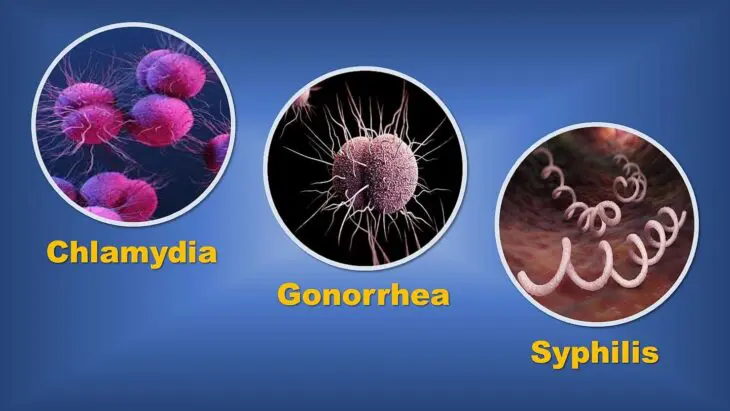
How to Handle the Emotional Rollercoaster Post-STD Diagnosis
Receiving a diagnosis of a sexually transmitted disease (STD) can be a profoundly unsettling experience, marked not only by physical health concerns but also by a complex spectrum of emotional responses. The journey post-diagnosis often entails navigating through feelings of shame, fear, and isolation, making it crucial to understand how to manage this emotional rollercoaster effectively. This blog post aims to offer insights and guidance to help individuals cope with the psychological impact of an STD diagnosis, promoting a path toward healing and acceptance.
Understanding Your Emotions

It’s natural to experience a whirlwind of emotions after being diagnosed with an STD. You may feel shock, anger, sadness, or betrayal, particularly if you believe your trust has been compromised. The first step toward emotional healing is acknowledging these feelings as valid and normal. Denying your emotions can lead to further psychological distress. Accepting them is not admitting weakness; rather, it’s the first step in processing your experience.
Feeling upset or distressed is a natural part of coming to terms with a health diagnosis that can impact one’s lifestyle, relationships, and self-esteem. These feelings do not reflect personal failure; they are a response to a significant life event. Understanding that it’s okay to feel this way can help mitigate feelings of guilt or self-blame, which are common in such situations.
In navigating the emotional aftermath of an STD diagnosis, it’s crucial to tackle the stigma associated with these conditions, which can contribute to feelings of shame and isolation. It’s important to remember that having an STD does not reflect on your character or worth.
Educational efforts about the prevalence and nature of STDs can help dismantle the stigma. Additionally, in an era where misinformation can spread quickly, even through means as casual as a std prank text free scenario that someone might find online, it’s vital to communicate openly with healthcare providers, trusted friends, or support groups. These reliable sources of support and information provide reassurance and dispel misconceptions, helping to lift the burden of shame and foster a more informed and supportive community.
Seeking Support

Professional counseling can be invaluable after diagnosis. Therapists who specialize in sexual health or chronic illness can offer strategies to manage stress, anxiety, and depression associated with the diagnosis. They provide a safe space to express and process emotions, which is crucial for mental well-being.
Support from friends and family can significantly ease the emotional strain. Sharing your feelings with people you trust can help reduce feelings of isolation and provide emotional relief. It’s important to choose supportive and understanding individuals who will respect your privacy and offer unconditional support.
Many people find solace and understanding through support groups. These groups connect you with others who have had similar experiences and can offer perspective, coping strategies, and friendship. Whether online or in person, community support can be instrumental in helping you navigate the emotional aspects of living with an STD.
Managing Relationships

An STD diagnosis inevitably affects romantic relationships. It’s essential to communicate openly and honestly with current and potential partners about your health. This conversation is vital for protecting their health and discussing safe sex practices. While daunting, these discussions can build trust and intimacy and are crucial for responsible relationship management.
Relationship dynamics may shift after an STD diagnosis. Some partners may be supportive, while others might react negatively. It’s important to be prepared for various reactions and prioritize your emotional and physical health in these interactions. Professional counseling can also support couples in navigating this change.
Starting new relationships can be particularly challenging. Deciding when and how to disclose your STD status is a personal decision that depends on mutual trust and respect. It’s important to communicate openly and to choose a time when you feel comfortable and safe.
Focusing on Health and Wellness
Managing your physical health is crucial after an STD diagnosis. Follow your healthcare provider’s advice, adhere to treatment protocols, and attend regular check-ups. Taking care of your physical health can also improve your emotional well-being by giving you a sense of control over your health journey.
Incorporate practices that bolster your mental health. Activities like mindfulness, yoga, and exercise can reduce stress and improve your mood. Additionally, hobbies and social activities can keep your mind engaged and help you maintain a sense of normalcy and joy in your life.
Looking at the big picture, it’s important to develop long-term strategies for managing both your physical and emotional health. This might include regular therapy, ongoing support group meetings, and developing a wellness plan that suits your needs and lifestyle. Wellness is a journey, and it’s important to continuously adapt and respond to your needs over time.
Confronting the Impact on Self-Image

An STD diagnosis can significantly impact how you see yourself, which might lead to a decreased sense of self-worth or altered body image. Recognizing that these feelings are a common part of grappling with a medical diagnosis can help you begin to separate your condition from your self-identity. Self-compassion is key; treating yourself with the same kindness you would offer a friend in your situation can facilitate emotional healing and acceptance.
Building back your self-esteem may require intentional effort and patience. Engaging in activities that reinforce your strengths and abilities can help restore your confidence. Additionally, setting small, achievable goals can provide a sense of accomplishment. Over time, focusing on what your body can do rather than its condition can shift your perspective positively, reinforcing that your self-worth is not defined by your health status.
Enhancing Communication Skills
Effective communication is crucial not only with partners but also with healthcare providers and support networks. Honing your communication skills can help you articulate your feelings and needs more clearly, reducing misunderstandings and increasing the support you receive. Role-playing conversations with a therapist or trusted friend can prepare you for difficult discussions, whether they’re with intimate partners or family members.
Conclusion
Navigating the emotional aftermath of an STD diagnosis is undoubtedly challenging, but with the right tools and support, it is possible to manage the stress and lead a fulfilling life. Remember, an STD diagnosis is just one part of your story—it does not define you. By focusing on healing, seeking support, and maintaining your health, you can manage the emotional rollercoaster and move forward with confidence and resilience.